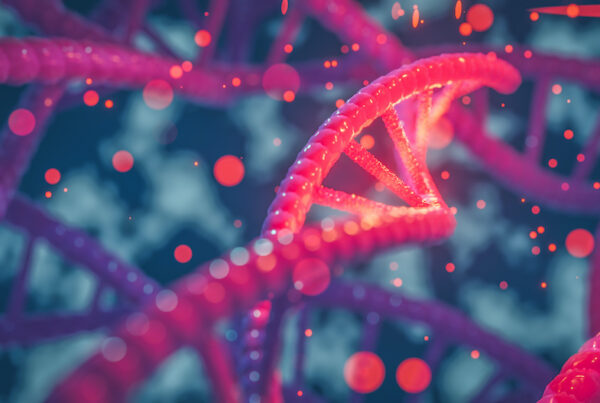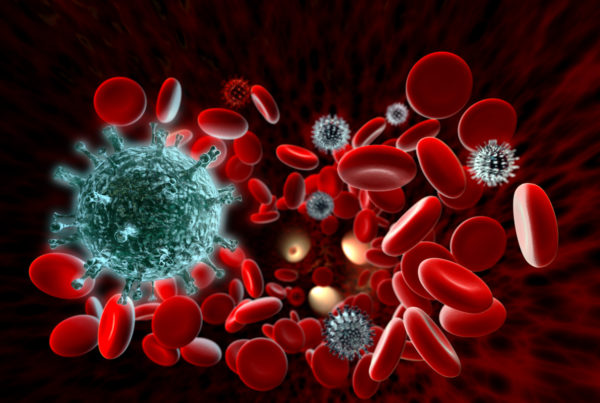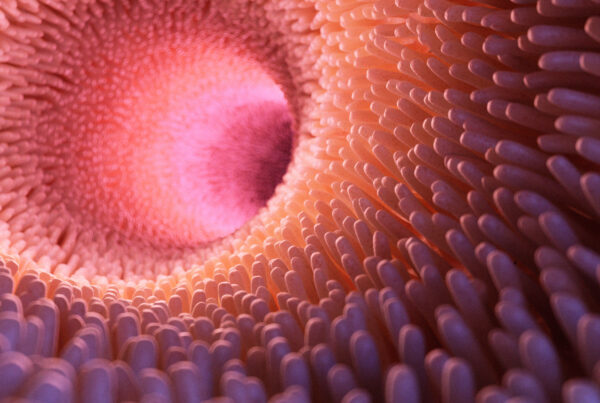Over the past decade, peptide therapy shifted from something used only by celebrities and elite athletes to a tool that was available to almost anyone. Peptides, which are chains of amino acids, are responsible for signaling a handful of bodily functions. Many peptides are produced naturally by the body, but they can also be produced synthetically.
Not sure what a peptide is? Read more in our “What is Peptide Therapy?” guide.
While peptide therapy is relatively new, the research behind it is incredibly promising.
Who Could Potentially Benefit from Peptide Therapy
Modern technology and scientific tools and resources have made it possible for scientists, medical researchers, and innovative technology companies to make stunning breakthroughs in recent years in everything from cancer treatments to pharmaceutical drugs. But peptide therapy, in one form or another, has been around for at least 100 years.
It may not necessarily be categorized as peptide therapy today, but the discovery and subsequent production of synthetic insulin to treat type 1 diabetes in the 1920s is a classic example of peptide therapy at work. In people with type 1 diabetes, the pancreas produces little to no insulin, the hormone that regulates blood sugar. Before the development of pharmaceutical insulin, type 1 diabetes was almost always a death sentence.
Since then, dozens of peptides have been cleared by the U.S. Food and Drug Administration (FDA), and hundreds more are currently being tested in clinical trials and in various stages of development for a number of medical and consumer applications.
The potential clinical and commercial applications for peptide therapy span a number of areas from physical fitness and general wellbeing, to sexual health and performance.
Peptides and Aging
Human beings have been obsessed with youth for centuries, and the quest for the mythical fountain of youth is as commonplace throughout history as any human endeavor. Today people are living longer than ever before, and managing some of the most problematic aspects of aging has become central for adults looking to lead a healthy, physically active, and rewarding lifestyle well into their golden years and beyond.
Aging affects the body on multiple fronts. On the surface, a decrease in collagen production causes the most common and recognizable signs of aging: fine lines and wrinkles, loose, sagging skin, and thinning hair. Natural levels of certain hormones like estrogen in women, testosterone in men, and human growth hormone also decline as people get older. In addition to decreased fertility and lower sex drive, older adults also experience loss of lean muscle mass and bone density.
According to the results of a study published in the International Journal of Peptide Research and Therapeutics:
“We investigated the influence of two anti-wrinkle bioactive peptides on mechanical properties of HaCaT keratinocytes. Peptide 1 (P1, Acetyl Tetrapeptide-2) is known as a stimulator of structural skin elements including collagen and elastin. Peptide 2 (P2, Acetyl Hexapeptide-50) simulates action of transcription factor FOXO3a, responsible for protection of DNA and maintenance of cellular homeostasis. We showed that HaCaT keratinocytes exhibit a change in elasticity after anti-wrinkle peptides treatment in vitro. Moreover, our results indicate change of genes expression crucial for activity of both peptides.”
Peptides have become central to anti-aging therapies and products for their ability to work on a cellular level, where the aging process actually takes place.
Peptides and Injury Recovery
Physical fitness and regular exercise are central to maintaining an active and healthy lifestyle, especially as we age. But the aging process presents something of a Catch 22 for adults: you need to get regular exercise and keep moving to stay healthy as you age, but some of the factors associated with aging like loss of lean muscle tissue and a drop in growth hormone production can actually make you more prone to injury, weaker, and less mobile over time. Peptide therapy has shown particular promise in the areas of injury recovery and soft tissue repair.
There are several peptide-based therapies currently on the market that focus on signaling growth hormone production and other reparative pathways to assist healing from soft tissue injuries (muscle, tendons, ligaments, cartilage):
- CJC 1295 and Ipamorelin – stimulate the release of HGH
- Thymosin Beta 4 (TB4) – responsible for cell regeneration and repair, anti-inflammatory
- BPC 157 – helps to accelerate healing in soft tissue like tendons and ligaments
According to one study:
“Pentadecapeptide BPC 157, composed of 15 amino acids, is a partial sequence of body protection compound (BPC) that is discovered in and isolated from human gastric juice. Experimentally it has been demonstrated to accelerate the healing of many different wounds, including transected rat Achilles tendon. This study was designed to investigate the potential mechanism of BPC 157 to enhance healing of injured tendon. The outgrowth of tendon fibroblasts from tendon explants cultured with or without BPC 157 was examined. Results showed that BPC 157 significantly accelerated the outgrowth of tendon explants.”
Anyone from professional athletes to active individuals can potentially benefit from the therapeutic applications of peptide therapy to improve the body’s ability to repair itself after an injury.
 Peptides and Libido/Sexual Health
Peptides and Libido/Sexual Health
Although sexuality and sex are still considered too taboo to discuss as openly as physical fitness and mental health, a healthy, active sex life is an important factor in overall health and wellbeing. But the aging process also takes a toll on sexual arousal/libido in both men and women. There are several factors that can interfere with sex, from lack of arousal and desire to pain (mostly in women), difficulty with erections for men, and inability to climax.
Both men and women experience decreased production of the primary “sex” hormones testosterone and estrogen as they age, which can interfere with the ability to engage in and enjoy sex.
One of the most exciting breakthroughs in peptide therapy is PT-141 (Bremelanotide), an FDA approved therapy for men and women who are otherwise healthy enough and interested in having sex but are experiencing diminished desire and arousal.
Also referred to as the “sex shot” or “women’s Viagra,” (although it’s also available for men), PT-141 has been shown to increase desire and help to manage anxiety associated with low libido/lack of sexual desire and activity.
Peptides and Body Sculpting
Many people think of anabolic steroids and doping in the sports world when they think of human growth hormone, but HGH is actually a natural hormone in the human body that plays a crucial role in the development of tissues, organs, and other key biological processes. Peptide therapy doesn’t make synthetic HGH, it stimulates the signals that encourage natural HGH secretion.
In addition to helping increase strength and endurance by promoting the development of healthy lean muscle mass and supporting connective tissue, peptides can also help to manage the risk of age and injury-related muscle atrophy.
Peptides and Fat Loss
Weight gain, especially in the abdominal area is a common problem for American adults, especially after age 40. According to Harvard Health, abdominal fat is especially problematic and can increase the risk of a number of serious health problems including diabetes, heart disease, and some forms of cancer:
“Research suggests that fat cells — particularly abdominal fat cells — are biologically active. It’s appropriate to think of fat as an endocrine organ or gland, producing hormones and other substances that can profoundly affect our health. Although scientists are still deciphering the roles of individual hormones, it’s becoming clear that excess body fat, especially abdominal fat, disrupts the normal balance and functioning of these hormones.
Scientists are also learning that visceral fat pumps out immune system chemicals called cytokines — for example, tumor necrosis factor and interleukin-6 — that can increase the risk of cardiovascular disease. These and other biochemicals are thought to have deleterious effects on cells’ sensitivity to insulin, blood pressure, and blood clotting.”
Peptide therapy can be a tool to assist weight loss efforts in a number of ways, from improving energy levels to optimizing metabolism.
Peptides and Tanning
Nothing says health and a fit, active lifestyle like a fresh, glowing tan. Unfortunately, too much exposure to harmful UV rays from both the sun and artificial tanning beds can increase the risk of premature aging and skin cancer. According to the American Academy of Dermatology, skin cancer is the most common form of cancer in the United States.
Melanotan II functions as a signaling peptide to stimulate the production of melanin in the skin, without exposure to harmful UV rays from the sun or tanning beds, or chemical self-tanning products.
Peptides and Sleep
Modern adults are more sleep-deprived than ever. According to poll results from the National Sleep Foundation, only 10% of respondents prioritize getting enough sleep over other priorities like fitness, work, and social commitments. Not surprisingly, 90% of people who made adequate sleep a priority claimed to feel more effective and capable of achieving their goals and tasks throughout the day. Sleep deprivation, especially when it becomes chronic, can have a number of negative effects on health and wellbeing, from decreased energy levels to weight gain and other serious health problems.
In younger subjects, a small dose of MK-677 led to a 50% increase in the duration of stage IV sleep and a more than 20% increase in REM sleep when compared to placebo.
In older adults, treatment with MK-677 was associated with a nearly 50% increase in REM sleep and a decrease in REM latency [1].
 Nootropic Benefits of Peptides
Nootropic Benefits of Peptides
Commonly referred to as “smart drugs,” nootropic therapies are designed to help boost mental/brain function. Like peptides, some nootropic drugs are naturally produced in the body, while others are synthetically produced to help improve brain function. According to a study on the potential effects of peptides on cognitive enhancement:
“The aim of this paper is to present an overview of three peptides that, by improving synaptic function, enhance learning and memory in laboratory rodents. We summarize their structure, their mechanisms of action, and their effects on synaptic and cognitive function. First we describe FGL, a peptide derived from the neural cell adhesion molecule which improves cognition by the activation of the PKC pathway that triggers an activity-dependent delivery of AMPA receptors to the synapses.
Then we describe PTD4-PI3KAc peptide that by activating PI3K signaling pathway it promotes synapse and spine formation and enhances hippocampal dependent memory. Lastly, we describe a new peptide derived from the well-known tumor suppressor PTEN that prevents pathological interactions between PTEN and PDZ proteins at synapses during exposure to Amyloid beta. This action prevents memory deterioration in mouse model of Alzheimer’s disease.
Together, this review indicates how learning and memory can be improved by manipulating synaptic function and number through pharmacological treatment with peptides, and it establishes synaptic function as a valid target for cognitive enhancement.”
Nootropic peptides are exciting for a handful of reasons. One of the most popular nootropic peptides, Semax, is even taken intranasally. Other popular nootropic peptides include Selank and Cerebrolysin.
Are Peptides Safe?
Peptide therapies like PT-141 have been cleared for consumer use by the FDA, but every treatment has its own set of possible side effects.
Always consult with your physician or medical team before beginning any new treatments, especially if you have underlying health concerns or are taking medications. Look for products and vendors that follow FDA guidelines for safety and authenticity to make sure that the peptides you’re buying have been manufactured responsibly and meet clinical-grade clearance safe for human consumption.
Read more: Are Peptides Safe?
Potential Side Effects of Peptides
Some of the most common reported side effects of peptide use may include:
- Pain or itchiness at the injection site
- Water retention
- Increased hunger
- Weight gain
- High blood pressure
- Darkening of moles or freckles
- Joint pain
Talk to your doctor before beginning peptide therapy, and make sure to keep them up to date with any side effects you are experiencing.
For more information about how peptide therapy works and whether it can help you achieve your goals, contact us today to learn more about our products and services.
As with any treatment, the results and potential side effects of peptide therapy will vary from person to person. Peptide therapy is not intended as a replacement or alternative to medical treatment or a healthy diet and active lifestyle, which is the cornerstone of lasting health, wellbeing, and longevity. For high functioning and athletic individuals, peptide therapy may provide an added boost to traditional therapies and treatment programs.
[1] Copinschi, Georges, et al. “Prolonged Oral Treatment with MK-677, a Novel Growth Hormone Secretagogue, Improves Sleep Quality in Man.” Neuroendocrinology, vol. 66, no. 4, Jan. 1997, p. 278.



 Peptides and Libido/Sexual Health
Peptides and Libido/Sexual Health Nootropic Benefits of Peptides
Nootropic Benefits of Peptides

